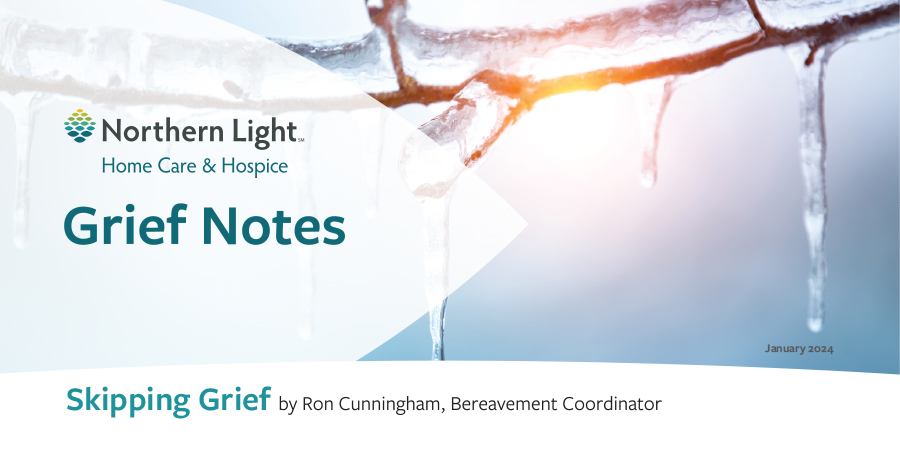LATEST NEWS
We are all just walking each other home. - Ram Dass
LATEST NEWS
We are all just walking each other home. - Ram Dass

Grief is a natural response to losing someone or something that you care about. Unfortunately, people are often under the impression that their grieving is all wrong because it does not follow a specific formula that they read in a book. Some people even believe that expressing the emotions associated with grief shows weakness. Hollywood movies often romanticize the heroes who deny their feelings of pain and sadness yet somehow triumphantly move on with ease after the death of a loved one. In reality, there is no right or wrong way to grieve, and the grieving process does not follow a pattern – it varies from person to person and even from day to day. Even though it can be messy and uncomfortable at times, the grieving process is extremely vital to good mental and physical health. What happens when a person avoids grieving? Some people think that grief will eventually go away if it’s ignored long enough. However, grief, like any other stress in life that we don’t attend to, will grow and attempt to take over our lives. Psychologists report that not grieving a loss can make subsequent grief even harder to process. It can also have a negative impact on both mental and physical health. It can lead to a higher risk of anxiety, depression, heart disease, aches and pains, difficulty sleeping, apathy, irritability, social isolation, and more. Grief can negatively affect relationships or even lead to a person not taking good care of themselves. I recently had the opportunity to talk with a gentle, soft-spoken lady who had just lost her father. She had many things vying for her time and was not able to allow herself the time to grieve her father. She was staying busy and distracted by many activities, so she thought everything would work out. Soon, she started to become outwardly angry and very difficult to be around. It was not until someone was brave enough to finally talk to her about her behavior that she became aware of how grief could affect her, and she tracked those feelings back to the loss of her father. Grief can be emotionally painful, but the grieving process helps us to heal. Don’t lose hope. It takes time and support to work through a loss. Acknowledge and express your feelings, be kind and patient with yourself, find healthy ways to cope, and remember to seek support from family, friends, and your community. Let yourself grieve in your own way and in your own time, and you will eventually find that the cherished memories of your loved one will bring you comfort.
Six Week Grief Support Group – Aroostook County
Have you lost a loved one? When someone we love dies, it can feel overwhelming. You may feel alone and that no one understands what you are going through. The truth is that many are walking a similar path. Consider coming to a place where you can talk, grieve, and move forward with people who are also grieving.
A Six Week Grief Support Group will be held for six consecutive Tuesdays, starting January 9, and concluding on February 13. They will be held at AR Gould Hospital in Presque Isle from 6 to 7:30 pm. This group is free of charge and open to anyone who has experienced the loss of a loved one, but registration is required, and participants are encouraged to attend all group sessions. This group will be limited to 12 participants, so please be sure to RSVP.
For more information and registration, please contact George McLaughlin at (207) 498-9039 or email at gmclaughlin@northernlight.org.
As your Bereavement Coordinator, I am available by phone for grief support. If you would like to arrange a time to talk or meet one-on-one, please e-mail your request to George McLaughlin at gmclaughlin@ northernlight.org or call me at 207-498-9039. I will get back to you as soon as I can. Our agency toll-free number is also available to you: 1-800-757-3326.